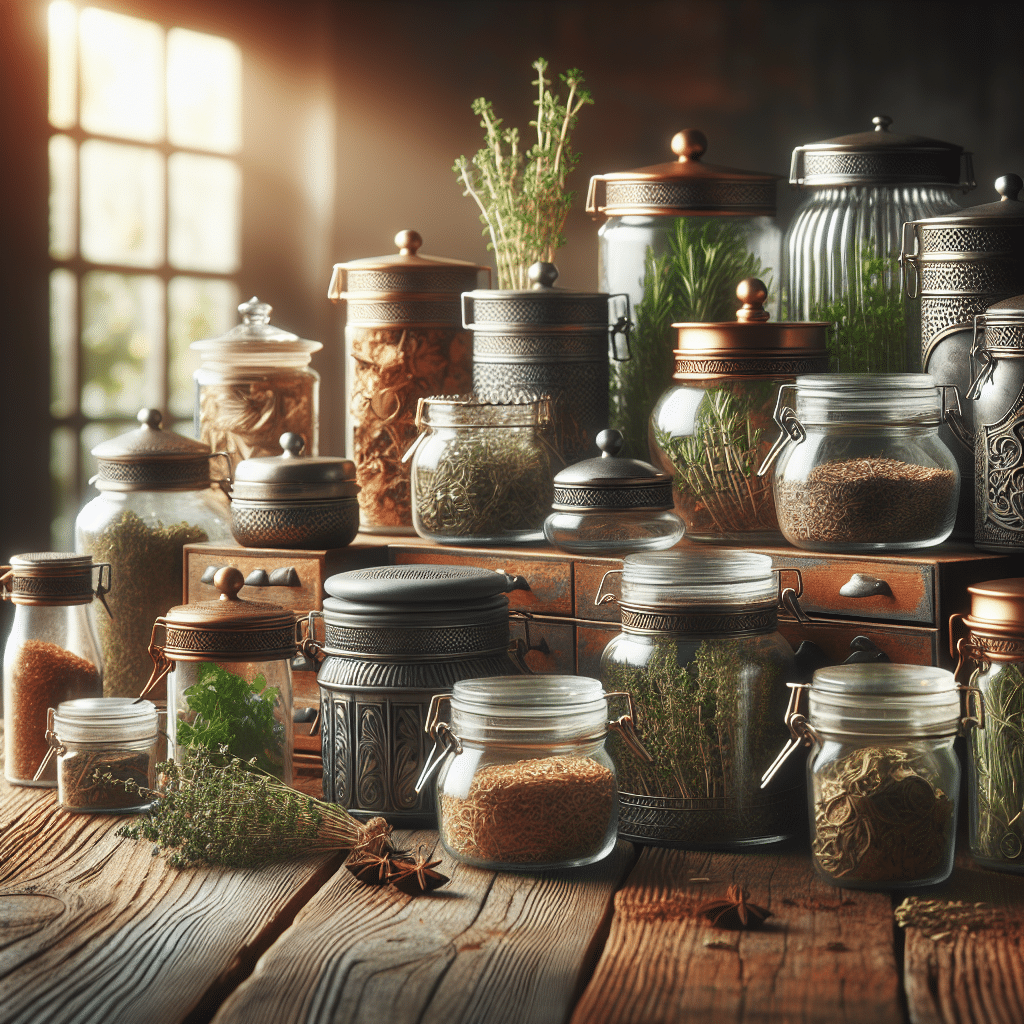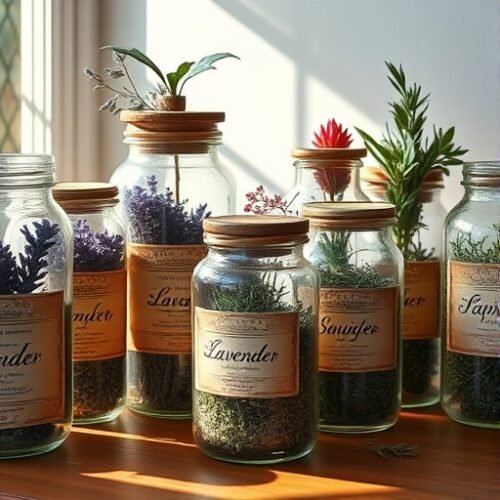


The Ultimate Guide to Dried Herb Containers: Preserve Freshness and Flavor
When it comes to preserving the flavors and aromas of your favorite herbs, dried herb containers are the unsung hero. As a home cook and herb lover I’ve spent hours researching the best way to store these delicate gems. In this guide, I’ll share everything I’ve learned about choosing the right containers so you can keep your herbs as fresh and flavourful as the day you picked them.
Quick Tips: Herb Storage with the Right Containers
- Why Herb Storage: Proper storage keeps the flavors and aromas of herbs, essential for cooking.
- Containers: Glass jars, metal tins, ceramic containers, plastic containers, vacuum-sealed bags. Each has its benefits.
- Airtight Seals: Prevent oxidation and moisture from getting in, and keep herb potency.
- Material: Glass, metal, ceramic. These are the best.
- Size and Fit: Choose containers that match herb quantities to minimize air exposure and keep fresh.
- Labelling and Storage: Always label and store in cool, dark places to extend herb shelf life.
- Storage Tips: Herbs should be fully dry, with no moisture, handle gently to avoid crushing, and rotate stock regularly to keep fresh.
Why Proper Herb Storage Matters
If you’re like me you know how powerful herbs can be in cooking. A sprinkle of oregano can turn a simple tomato sauce into something special, and a dash of thyme can make a roast unforgettable. But improper storage can turn your herbs into stale, flavorless ones that add nothing to your dishes. That’s where the right dried herb containers come in. By keeping herbs away from air, light, moisture, and heat these containers will keep every leaf and stem at its peak potency.
Dried Herb Containers
Choosing the right container means understanding the different types out there. Let’s take a look:
- Glass Jars: Glass jars are a classic and for good reason. They’re airtight, transparent, and provide a great barrier against moisture. The transparency makes it easy to identify your herbs but you need to store them in a dark place to avoid light exposure.
- Metal Tins: These tins are stylish and durable. They’re good for light protection but make sure they have a food-safe lining to prevent any metallic flavour transfer.
- Ceramic Containers: For those who like a more aesthetic approach, ceramic containers are both beautiful and effective. They keep light out and can add a touch of elegance to your kitchen.
- Plastic Containers: Not as effective as glass or ceramic, BPA-free plastic containers are a budget-friendly option. Make sure they’re airtight and stored away from direct sunlight.
- Vacuum-Sealed Bags: For long-term storage, vacuum-sealed bags are a game changer. By removing air they minimise oxidation and extend the shelf life of your herbs.

What to Consider
Choosing the right container is as much about you as it is about the herbs. Here’s what to think about:
- Airtight Seal: The most important part of any herb container is the airtight seal. This will prevent oxidation and keep your herbs fresh.
- Material: As mentioned above, glass, metal, and ceramic are the best for environmental protection.
- Size and Shape: How much of each herb do you typically keep on hand choose containers that fit your needs without leaving too much space which can cause staleness.
- Ease of Use: Look for containers that are easy to open and close especially if you’ll be using them often.
How to Store Your Herbs
Even the best containers need some best practices to get the most out of them. Here are some tried and true tips for storing your dried herbs:
- Keep Them Cool and Dark: Store your containers in a cool, dark place like a pantry or cupboard. Heat and light are the enemies of longevity when it comes to herbs.
- No Moisture: Make sure your herbs are completely dry before storing them. Any residual moisture can cause mold and spoilage.
- Label and Date: Always label your containers with the herb name and date of storage. This will help you keep track of freshness and make sure you use older herbs first.
- Don’t Crush: Handle your herbs gently so you don’t crush them, as this can release their flavors and aromas prematurely.
- Rotate Regularly: Check your herbs regularly for freshness. If they start to lose their scent it’s time to replace them.
Why Proper Herb Storage
Investing in good quality dried herb containers and following storage techniques has many benefits:
- Better Flavour: Stored herbs retain their essential oils which are responsible for their flavors and aromas.
- Cost Effective: By extending the life of your herbs you save money by reducing waste and the need to buy more often.
- Culinary Freedom: With a well-preserved herb collection you’re always ready to get creative and take your cooking to the next level.
As a home cook, I’ve found that the secret to great cooking is in the details. By paying attention to how we store our herbs we can get the most out of them and take our cooking to the next level. With the right dried herb containers and a bit of TLC, you’ll be able to keep your herbs fresh and flavorsome for months to come. So here’s to colorful, aromatic food that delights and brings joy to every meal.
Now that you know this go ahead and revolutionize your kitchen storage. Your taste buds will thank you and your cooking will never be the same!
Frequently Asked Questions About Dried Herb Containers
What’s the best container for storing dried herbs?
The best container for storing dried herbs is one that’s airtight to prevent moisture and air from spoiling them. Glass jars with tight-fitting lids are popular because they’re non-reactive and transparent so you can see what’s inside. Metal tins and ceramic containers are also great because they’re durable and protective.
How do I keep my dried herbs fresh for longer?
To keep your dried herbs fresh store them in a cool, dark place away from direct sunlight and heat sources. Make sure the herbs are completely dry before putting them in their containers to prevent mold growth. Airtight containers are key to preventing moisture and air exposure. Check your herbs regularly and gently shake the container to circulate the air.
Are there certain materials I should avoid for herb containers?
While plastic containers are light and cheap they can sometimes absorb odors or leach chemicals into the herbs especially if exposed to heat. It’s generally better to avoid plastic for long-term storage. Go for materials like glass, metal, or ceramic which don’t interact with the herbs or affect their flavours.
What size container should I use for my herbs?
The size of your container should match the amount of herbs you have to minimize air exposure. A container that’s too big can cause the herbs to degrade quickly as the extra air space causes them to go stale. Choose a snug-fitting container that leaves just enough room to shake or move the herbs gently.

